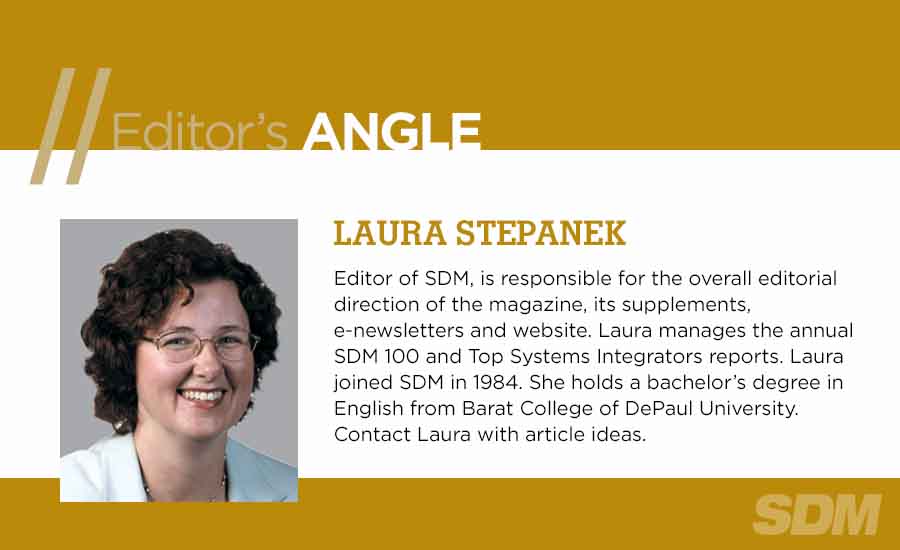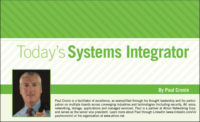You caught me on a bad day. I recently received an email from Scottrade notifying me that the account my husband and I have with them was compromised. Scottrade wrote, in part, “Although Social Security numbers, email addresses and other sensitive data were contained in the system accessed, it appears that contact information was the focus of the incident.”
This is not the first time I’ve been “compromised;” nor will it be the last, I’m afraid. I also was a victim in the cyber attacks on Target as well as my healthcare provider’s administrative office. And that makes me mad.
I take responsibility for the security of my personal identity and I try very hard to guard my privacy. I don’t do a lot of online purchasing but when I do, I limit those purchases to a single credit card. I shred documents containing my name, address, social security number, etc. I don’t use suspect Wi-Fi connections to pay bills. I regularly check my bank account and credit card transactions for fraudulent activity. I know there is a lot more I could do, but what I think is unfair is that these organizations have the expertise at their disposal to advise them on cyber security, and they have deep pockets to pay for whatever it takes to protect their customers’ sensitive data. Shouldn’t they take my privacy as seriously as I do?
Even when they do take steps to protect me, the hacking community is often one step ahead. The Identity Theft Resource Center found in its report released last January that the number of U.S. data breaches tracked in 2014 hit a record high of 783, a 27 percent increase over 2013. What’s more, there are anywhere from 12 million to 16 million victims of identity theft annually.
Those figures are part of this month’s cover story, “Becoming a Cyber Pro,” on page 50. The article also cites a new report by AT&T, “Cyber Security Insights Report,” which reveals there has been a dramatic increase — by 458 percent — in the number of times hackers searched Internet of Things (IoT) connections for vulnerabilities. At risk are automated devices that remotely or automatically adjust lighting or HVAC; security systems; thermostats; wearables; and lighting modules, according to the FBI.
SDM Senior Editor Karyn Hodgson describes how our very own industry has taken notice that this is both a critical need and a business opportunity; that security companies, as trusted business leaders in their communities, are in an ideal position to help consumers protect themselves.
Hodgson writes that security dealers such as Paul Sargenti, president and CEO of SAFE Security — featured on this month’s cover — began paying close attention to these trends a few years ago. “We have been providing home and business security for almost 28 years; but today these are really not all the threats our customers are being confronted with,” Sargenti says in the story. “There is this other threat — identity theft — that is potentially more troubling than even intrusion or fire. Those you can recover from with insurance. Identity theft is ... much more difficult to track and provide defense against. It can be very damaging to our customers.”
SAFE Security, in partnership with InfoArmor, created SAFEid, an extensive nine-point program that incorporates end-to-end cyber security from prevention to reporting and even insurance — all at no additional cost to the customer. And other security companies are following suit, with cyber security services available now or soon to come.
At the time of this writing, SDM’s Associate Editor Tim Scally was at CEDIA EXPO in Dallas and reported on the keynote speaker’s remarks, who also touched on cyber security. Michael Rogers, futurist in residence at The New York Times and columnist for MSNBC.com, described an imminent market for “luxury software,” which will differentiate itself from what we are using now in that it will boast extreme ease of use, privacy and security. People will pay for a service that keeps their information private and secure, and Rogers anticipates a growing market for high-end online privacy, Scally wrote. See article at www.sdmmag.com/articles/cedia-expo-speaker-smart-homeliving-experience.
Kudos to dealers such as SAFE Security, Moon Security Services, Vector Security, and Alarm Financial Services for their progressive thinking and for leading the security industry into the future. Their new services are in a position to help me as well as millions of other security-minded people keep their identities to themselves. And that’s the way I’d like it.




